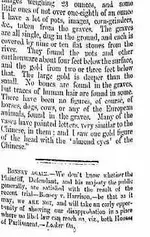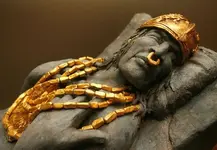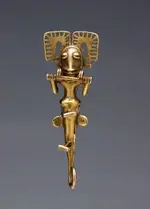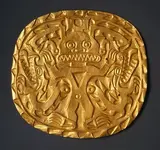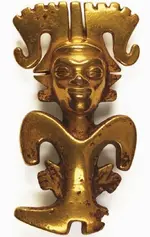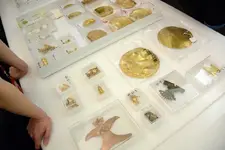Hello BillA
. . . .
Everything has a price. Everything on this planet is commodity to be bought and sold to the highest bidder.
. . . .
Prohibition against . . . . . . . . . was a total failure.
. . . .
While America and England are coming under attack for collecting such objects of cultural patrimony. The countries crying out about such cultural theft have been some of the biggest offenders themselves. If their country had not been so badly run by the elite of their countries creating desperate poor people in those countries.
There would not be the temptation for people in those countries to have to loot to survive.
I agree 100% at the end of the day it comes down to supply and demand.
After spending quite a bit of time in South America. Talking to families for example if you was in their shoes with large family to support with no real income, no welfare or choice except either looting ancient graves which has no relevance to everyday persons struggles to survive. Or even growing coca or dope when that is the only cash crop foreigners are willing to pay for?
You will do it to support your family. If anyone thinks otherwise they have never been in that situation.
The problem with academic elite of this world they live in ivory towers with no real understanding of such issues. What relevance does their archaeological research on the context to such discoveries they much often vaunted, have with every day people struggling to put food on the table?
Nothing zilch!
In truth archaeology is an elitist pastime for the idle rich who see such sites are their private domain. And argue such values as cultural patrimony which for most of the worlds population struggles to make ends meat? It seems so detracted and out of touch.
While there is now an open hostility to collectors by archaeologists. Many thousands of objects are hidden away in museums that never see the light of day. Most collectors I have met have a passion for the items they collect in fact regardless with the price on them the more they are treasured and preserved and when circumstances dictate passed onto other passionate collectors or eventual given to museums.
I agree totally with archaeologists that major archaeological sites should be preserved. But minor small sites on peoples properties should not be dictated by the whims of archaeologists. There needs to be a balance of conservation and fair use for the existing needs of people living in such regions and areas.
To me the UK potable antiquities scheme has been an outstanding success. With finders getting reward if valuable treasure discovered. Most surrendered only to glad to pass on such artifacts and museums are over flowing with artifacts. This structured partnership with everyday people and archaeologists in most cases have been hugely successful. Yet in other countries that concept is reviled with contempt?
Why is that?
Kanacki
Hi Kanacki,
Quite a mouthful, I tried to edit but it was futile; so will comment serially (Bill the Cynic).
"Everything has a price" is indeed the hallmark of our moral bankruptcy. Our current (Western) culture has monetized everything and the term
national patrimony causes immediate cognitive dissonance; i.e. what is the value of such? Having held stone dolls and looked at the evocative stone masks of the Mescala culture in Central Mexico, I can instantly agree that such items are indeed the national patrimony, beyond any value, and should remain in the general local of where they were found. One might suspect that I was an archie; not so, looter here. So how does Bill get to be playing with such neat things? Its all about economics.
For some years I lived in a very small rural 'town' in Central Mexico and, being me, would travel around and into the mountains to look at things. After several years men started to appear at my door with things to sell, both real and fake. I have never been in the antiquities business but have known collectors and as a kid had coins, stamps, butterflies, rocks, etc. I was stunned at the quality of what was presented, and at the destruction of some pieces to ward off the bad spirits. My distaste for diggers (huaceros) is really due to their destruction of so much wether by accident or design.
Prohibition is pointless, what is today called virtue signaling. Governments, pushed by archies et all, are trying to spike the demand for art/artifacts (other than by museums ??) but the only activity showing promise is the UK's antiquities scheme. How is it that eBay is full of Mescala artifacts and also fakes? I could repeat all this for Costa Rica although digging here today is not so common.
The scope of the artifact 'problem' is uneven, some countries having relatively few, poor societies' detritus superimposed on one another; whereas another area may have 5000 years of wealthy societies ever at war with one another. And China is being ignored in most discussions. One rule will not fit all. As pointed out, in many cases it is/was the countries themselves/rulers who sold the artifacts, and in many cases cannot be trusted today. So which thief will be given a pass ?
Is there a recurring theme ? Sure, more people enroach on more cemeteries; reduce the population pressure etc. etc. etc.
I suspect it will get worse.
Bill

